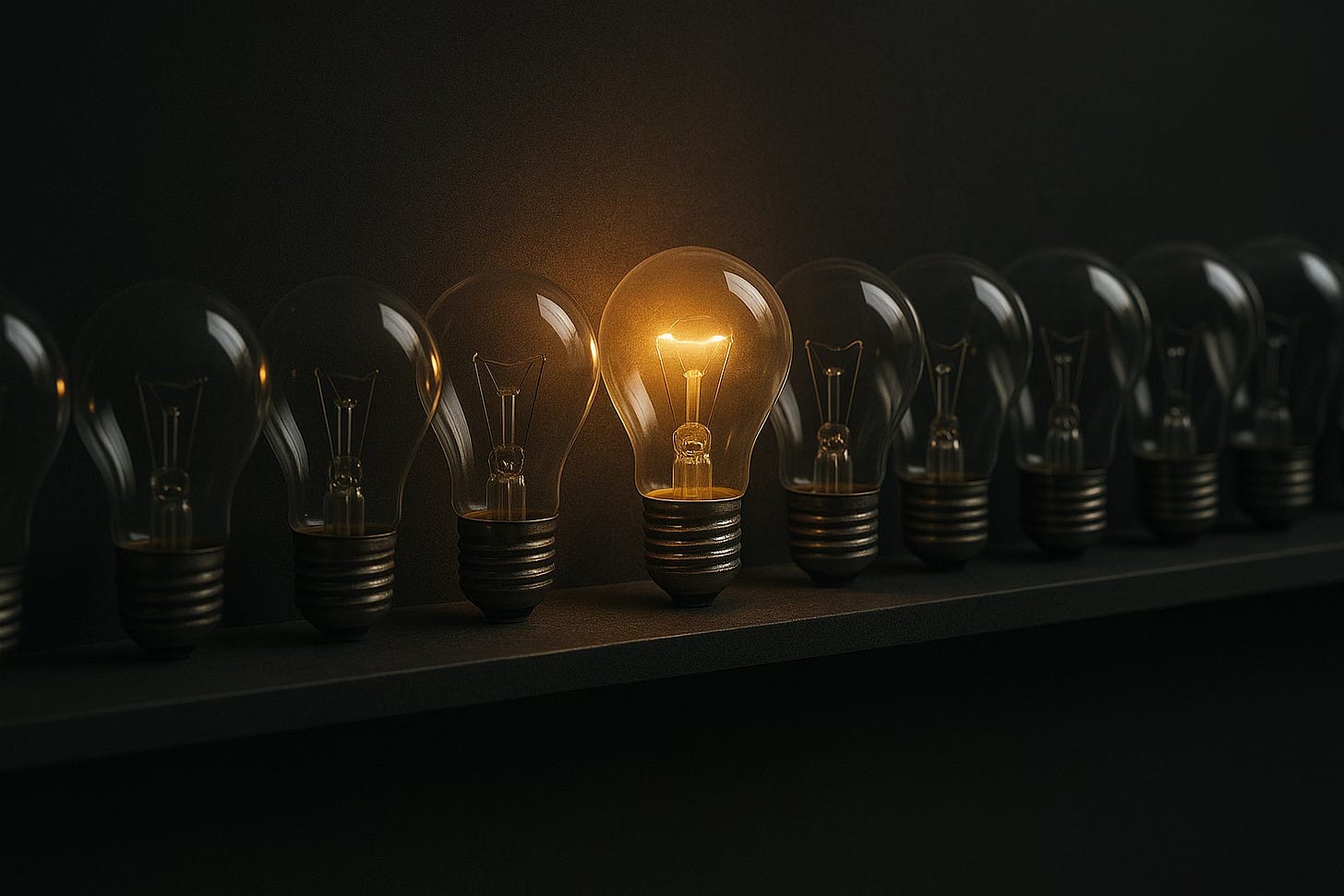When Everything’s Been Done
Creating Value in an Age of Excess
We live in an era drowning in abundance - of ideas, products, apps, music, opinions. Open your phone and you can scroll through more invention than any previous generation could dream of. Every problem seems already solved by a startup; every art form already remixed, every niche already occupied. It’s easy to feel as if the frontier is gone - that all that’s left is noise, optimization, or nostalgia.
But if innovation feels impossible, maybe it’s because newness itself has changed meaning.
The Saturation Point
For centuries, progress was about addition - building, expanding, colonizing new domains of thought and territory. The printing press, the steam engine, the internet - each opened new space to fill. Today, the digital world is already infinite. There are more hours of content uploaded daily than any human could consume in a lifetime.
So we’ve crossed a threshold: there’s more stuff than attention.
That shift changes the equation of value. In a world of scarcity, value came from making something rare. In a world of abundance, value comes from making something relevant. Scarcity of time, not supply, is the new limiting factor. And that’s why so many creators, founders, and thinkers feel trapped - not by lack of creativity, but by lack of room in people’s minds.
The Illusion of Novelty
We also have to admit: most “innovation” now is recombination. Large-language models remix words; pop culture loops through styles; startups reinvent the same social graph under new branding. It’s easy to dismiss this as derivative - but maybe it’s what evolution looks like in a mature ecosystem.
When biological ecosystems stabilize, adaptation slows. Progress becomes incremental, not explosive. That’s not stagnation - it’s refinement.
The same applies to human creation. The iPhone wasn’t the first smartphone; TikTok wasn’t the first video app. They succeeded not because they invented something new, but because they clarified something messy. Innovation in an age of excess is about distillation - subtracting, not adding.
Value as Meaning, Not Volume
In this context, the most valuable contributions aren’t new gadgets or platforms - they’re forms of meaning-making. People crave coherence, not novelty. The explosion of curation, longform podcasts, essays, and newsletters (yes, including this one) reflects that shift.
If the 20th century was about production, the 21st is about selection. The act of helping others navigate abundance - filtering, contextualizing, and humanizing - is itself a creative act.
Curation is the new creation. Guidance is the new genius.
The Emotional Economy
Another form of value now scarce is authentic emotion. As AI automates aesthetics, sincerity becomes currency. A machine can draw, compose, or mimic a voice - but it cannot care. The human spark moves up the value chain: not in producing outputs, but in producing connection.
That’s why so much of what feels truly “new” today - from small community projects to hyper-personal media - thrives on vulnerability. The emotional honesty of a creator is rarer, and therefore more valuable, than technical mastery. In the noise, empathy cuts through.
Reimagining Progress
If we zoom out, this moment isn’t the death of innovation - it’s a phase shift. The frontier has moved inward. We no longer need to invent more things; we need to invent better ways to live with what we’ve made. Sustainability, attention, and mental health are not side issues - they’re the new engineering problems of civilization.
Progress now means stewardship:
Restoring balance between digital creation and human wellbeing.
Rebuilding trust in institutions and information.
Designing tools that simplify rather than multiply complexity.
The next great inventors won’t build bigger networks. They’ll build smaller, saner ones.
The Quiet Frontier
So what does it mean to “create value” when everything’s been done?
It means shifting focus - from what’s next to what’s needed. From scale to sincerity. From invention to interpretation.
Maybe true innovation isn’t about doing something no one has done before, but doing something worth doing again, better, deeper, and with more humanity.
The new frontier isn’t outer space or cyberspace - it’s inner space: how we think, feel, and connect in a world that already has everything.
That’s not the end of creation. It’s just the point where creation finally meets conscience.
